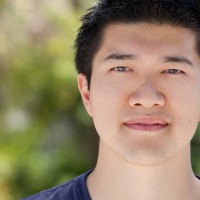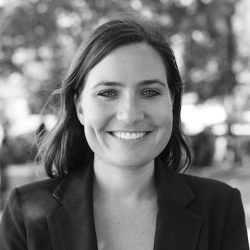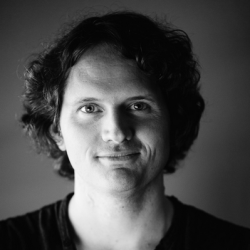
At 15, Justin Fung [MA Cross Cultural Studies ’09] decided to leave Hong Kong and go to boarding school in London. He was the last child at home and beginning to clash with his parents. They had reared their three sons with the freedom to cultivate their own unique callings, and had both spent extensive periods of their lives in other countries. Justin had already spent time with his brothers in Australia, and—with the eagerness and audacity of adolescence—was ready to get out and see the world.
The transition of moving to London was harder than Justin had anticipated. Because he viewed it as temporary, not intending to make it his long-term home, he kept closed off from really being there. He always had one eye on leaving and starting the next segment of his life.
One Sunday, Justin heard a sermon preached on Jeremiah 29, and his view of home shifted. In that passage, Jeremiah tells Hebrew exiles living in Babylon to build homes for themselves, to settle in, and invest where they are even though it is not their real home. This resonated with Justin’s experience: he was an “exile” living in London, but he needed to open himself to it in a new way. Justin stayed in London for five more years—enough time to establish significant relationships in a church community, a best friend, and a dating relationship.
And yet, even as Justin began creating a more settled life in London, he had a nagging feeling that other places and experiences in the world might better meet his longings. He was antsy. As his father and brother had done before him, he was tempted to set off to study at Fuller—and a last-minute decision changed his course again.
ESTABLISHING “LITTLE HOMES”
When Justin Fung arrived at Fuller Seminary’s Pasadena campus, he determined that this time he would start his life in a new city with openness to invest in a home there. He wouldn’t hold himself back out of self-protection just because he didn’t know how long he would stay. God met this need by planting Justin in a community of families in Chang Commons. He began “doing life” alongside his neighbors: sharing meals, talking for hours after class and work, and playing with the children living down the hall. He also was intentional to create a small circle of male friends who were committed to being involved in each other’s daily lives. These things rooted him, creating what he now calls “little homes.”
Christina Miller reflects on longing for home
“I was particularly drawn to Justin’s story because I identify with his deep longing for home. I come from a family that has an interesting combination of being deeply rooted in one place while also being very global.”
During his time at Fuller, Justin was deeply impacted by John Goldingay, David Allan Hubbard Professor of Old Testament at Fuller. He took every Old Testament class from him, but—more than that—learned from watching the ways Dr. Goldingay embodied his teaching. Justin listened to him teach on the Old Testament themes of suffering, loss, displacement, and lament all within the context of Goldingay’s care for his wife, Ann, in the last years of her life with multiple sclerosis. Goldingay brought his deepest griefs into the Fuller community and, in doing so, let the community be shaped by it. Through this Justin learned what it means to live in exile with suffering and loss, in uncomfortable and unexplainable tensions, yet with God’s covenantal promise.
When his time at Fuller was coming to a close, Justin came across an internship with Sojourners in Washington, D.C., where he hoped to prepare himself for ministry. Yet once again, he was uprooting himself from a community in which he knew people and was known.
THE ONE THING THAT MATTERS
It proved to be the hardest transition he had experienced. While he lived in a community house through Sojourners, D.C. was a difficult place to break into. Unlike Fuller there weren’t hundreds of like-minded students ready to make new friends. People were established in their lives, making it more difficult to have friendship reciprocated. His parents were in Hong Kong, brothers in Australia and California, best friend in London, and close friends from Fuller spread out across the United States. He felt the lack of a centralized identity, rootless, unsure where he belonged, and longing for home.
Christmas of that year was especially difficult. John Goldingay describes something akin to what Justin experienced in his chapter “Darkness.” Framed in terms of Saint John of the Cross’s The Dark Night, this is a time that strips us bare in order to refocus us on the one thing that matters. He quotes the Psalmist, “One thing I ask of the Lord, this is what I seek: that I may dwell in the house of the Lord all the days of my life, to gaze upon the beauty of the Lord and to seek him in his temple” (27:4). For Justin, it was the time when his longing spoke up and could not be ignored. Rather than escaping it, Justin listened. The “one thing” that was worth Justin’s focus was not purposeful experiences, the question of ordination, church planting, or picking a city and culture to belong to. The “one thing” was dwelling with God, making his home there.
John Goldingay writes…
“I have a hunch that long after anything I have ever said about the Old Testament, about which I care so passionately, has disappeared from most people’s memories, some aspect of the memory of Ann will abide with them…I also have the suspicion that she formed part of the identity of that community.”
From his book Walk On
In this moment of overwhelming darkness, he reached out to a coworker, Aaron. Aaron was a missionary kid who Justin thought could understand the repercussions of moving countries, uprooted relationships, and never knowing “what culture to call my own.” After a long phone conversation, Justin found himself spending Christmas with Aaron and his wife Amy—and over the course of the holidays they got to know one another, shared their dreams about church planting, and established a friendship. It was the safe, supportive relationship Justin needed.
 Back in D.C., Justin and Aaron continued to bond over their vision for starting a church. That spring the small group led by Aaron and Amy began meeting every Sunday in their living room, including others in their conversation about what a church might look like, and The District Church was born. Jeremiah 29 became a central theme, reinforcing the call Justin had received years before to seek the welfare of the city and invest where he is. A few months later, they moved into the basement of a local school, and in the three years since, they have grown from ten to almost 500 people, and have expanded to a second location where Justin serves as pastor.
Back in D.C., Justin and Aaron continued to bond over their vision for starting a church. That spring the small group led by Aaron and Amy began meeting every Sunday in their living room, including others in their conversation about what a church might look like, and The District Church was born. Jeremiah 29 became a central theme, reinforcing the call Justin had received years before to seek the welfare of the city and invest where he is. A few months later, they moved into the basement of a local school, and in the three years since, they have grown from ten to almost 500 people, and have expanded to a second location where Justin serves as pastor.
HELPING OTHERS TO MAKE THEMSELVES AT HOME
From the beginning, one of their main focuses has been to create a church where people can find home. “D.C. is a city that is even more isolating than other cities I’ve been a part of because transience is built into the calendar,” Justin says. Internships, elections, and school all create a high turnaround that makes deeply rooted community difficult to find.
Conversely, The District Church has rooted Justin in a location, community, and purpose. Nothing has gone to waste: his international experience, degrees in law and theology, passion for leading worship, and heart for social justice. His recent ordination is further confirmation that he is using his gifts in the way God called and prepared him.
Yet more significantly, choosing to establish himself in D.C. has come out of choosing to stay in the tensions rather than quickly resolve them. To not hurry out of the darkness but to let it reform him, ultimately finding God even there. There are losses to grieve in not living in the same place as his family members and closest friends. There are disappointments in not seeing more amazing parts of the world or what other lives could have been created there. There are discomforts in focusing on life in God rather than purposeful work for God. And there is loneliness in staying rather than leaving, facing himself rather than the next thing. But Justin is learning to take even these feelings before God, and in doing so to find a home in God.
This article was originally published in August 2013.







